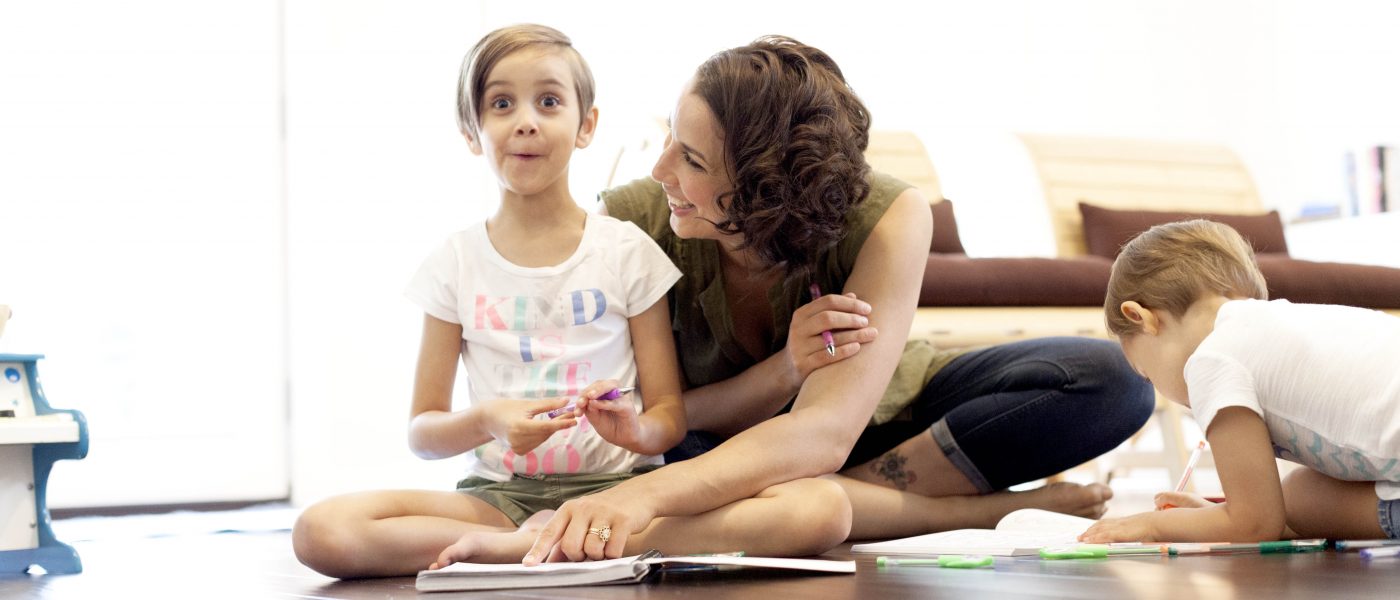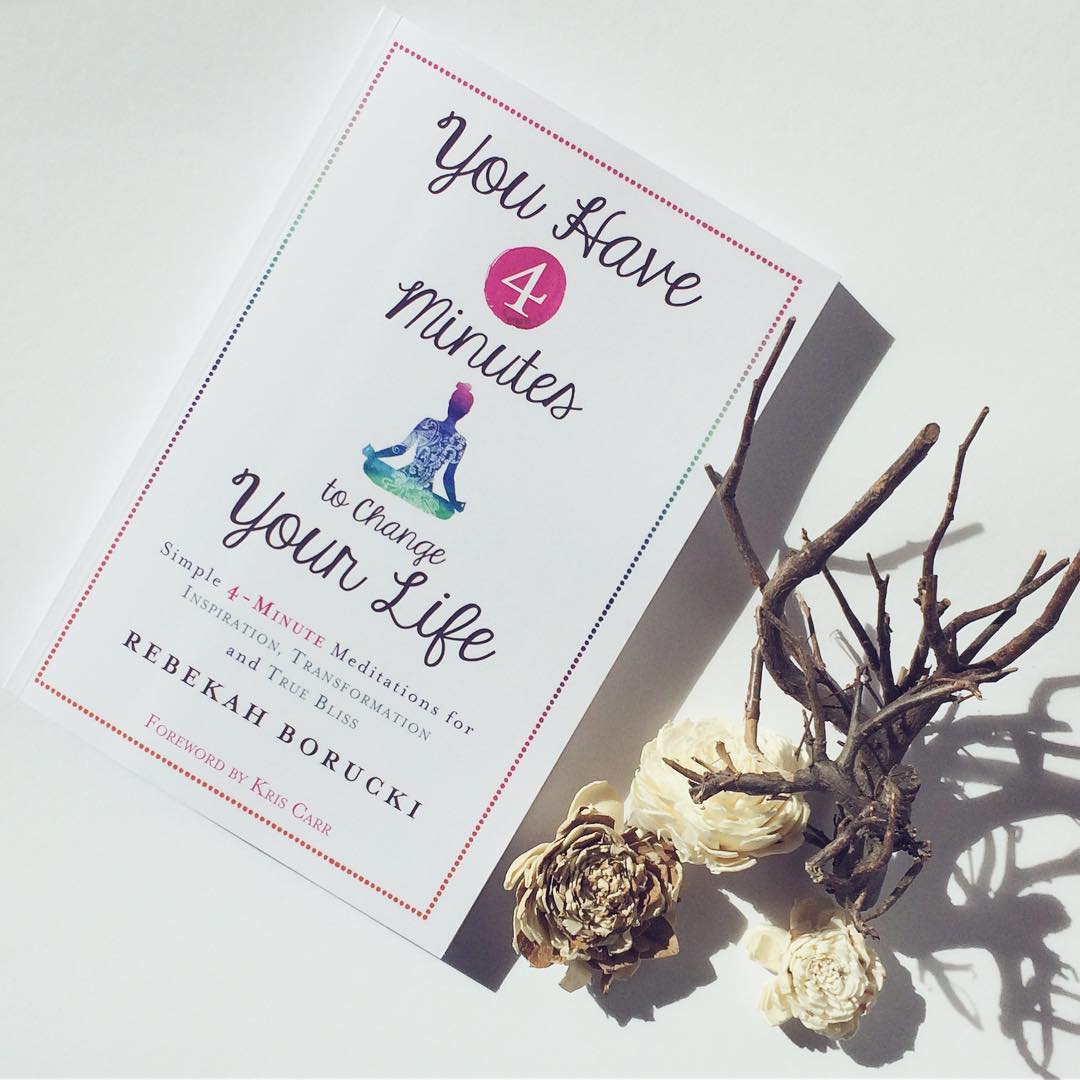
Enjoy this excerpt from Chapter 7 of my book, You Have 4 Minutes to Change Your Life.

4 Minutes to Manifest Courage, Confidence, and Success
There were no examples of courage or confidence or success in my immediate family—no one for me to look up to when I was a young person. No one who was financially successful. No one with high self-esteem. It was easy to be fearful because everyone closest to me was afraid.
When I was a kid, the adults in my life said, “Success is really hard.” They not only felt it was difficult to achieve, the implication was that it was for other people . . . and not for us. On the one hand, they told me that I was a child of God destined to do great things. On the other hand, they were modeling that we weren’t deserving of success and that it wasn’t within our reach. I could expect happiness in Heaven, but I shouldn’t get my hopes up about dreams coming true in this life. Needless to say, I was confused by these mixed messages and grew up without confidence in my ability to create the life I wanted.
When I began to work on my practice of guiding meditation, a lot of those old fears reared their ugly heads. Who was I to try to teach people anything? Who was I to try to write a book? Then I discovered that the courage and confidence I needed for success were intrinsically connected to my sense of purpose. When I remember one of my most important lessons/mantras—“I was created with divine intention”—I again connect to the knowledge that I have a purpose to fulfill. More than anything else, that’s what has helped me move forward in spite of fear.
Connecting with your purpose will help you have the courage to act even when fear threatens to hold you back. You’ll feel confident that you’re meant to do something, and that will give you the passion to do it. But how do you know what your purpose is?
Well, I do believe that we each have a unique purpose that is all his/her own. But discovering what that is may not be instantaneous. It can take time to unearth that divine purpose from within you. In the meantime, though, you can still operate in your life with a sense of purpose. I believe there’s a common purpose that we all share: “to love and to be loved, to learn and to teach.” We’re all here to do each of those things in whatever individual way we choose.
For me the love part of that equation is very practical and tangible. It’s the love I express on a daily basis toward myself and others. It’s earthly love, not just spiritual love. Yes, it’s great to be connected to the love of the Universe, but what about your love for the day-to-day moments of your life, the people around you, and the things you’re able to do? When I feel that kind of love, I’m invested in this earthly life and my purpose in it. I’m excited about the happiness that can be found in every moment, as we talked about in Chapter 6. I’m excited about what I can do in the world to make it a better place. When I feel and express love, I also feel and express compassion and empathy, both of which connect me to others.
As for being loved, it’s about allowing myself to receive love from others. This means that while I don’t need compliments to feel worthy, I do welcome compliments and appreciation from friends, family, colleagues, and students. It means that I allow myself to feel deserving of the love others give me. I acknowledge what I do for other people, and I allow them to praise me or express their gratitude.
This is a key component to discovering how to turn your purpose into a practical way of expressing who you are, and possibly even supporting yourself with a related job. If others appreciate something you do for them, maybe there’s a career there.
The next aspect of our common purpose is to learn. If you approach life with an open mind and heart, you’ll see teachers everywhere—even in the Internet trolls and the haters. Even in the people who treat you poorly. It’s the ability to observe your life from a place of curiosity. “I really hate what that person did, and it makes me feel angry. But let me look at that situation. What can I learn from it? How can I prevent something like that from happening again? Is there something inside me that I can change so that I don’t attract a similar situation in the future?” Learning is also an expression of love—love of adventure, new experiences, and unique opportunities to discover and grow.
Then, when you’ve learned a certain amount, it’s time to teach others. This can be the scariest part. At least it was for me. You do have to put yourself on the line when you move into the teaching position, but the rewards are enormous. You simply take what you’ve learned—even if it feels insignificant to you—and share it with others. You can begin by simply sharing the joy of your learning on social media. Tell your story to friends. See if people identify and can use the lessons you’ve learned in their own lives. Here’s an opportunity to share some joy on social media right now.
Click to tweet: My purpose is to love and to be loved, to learn and to teach.
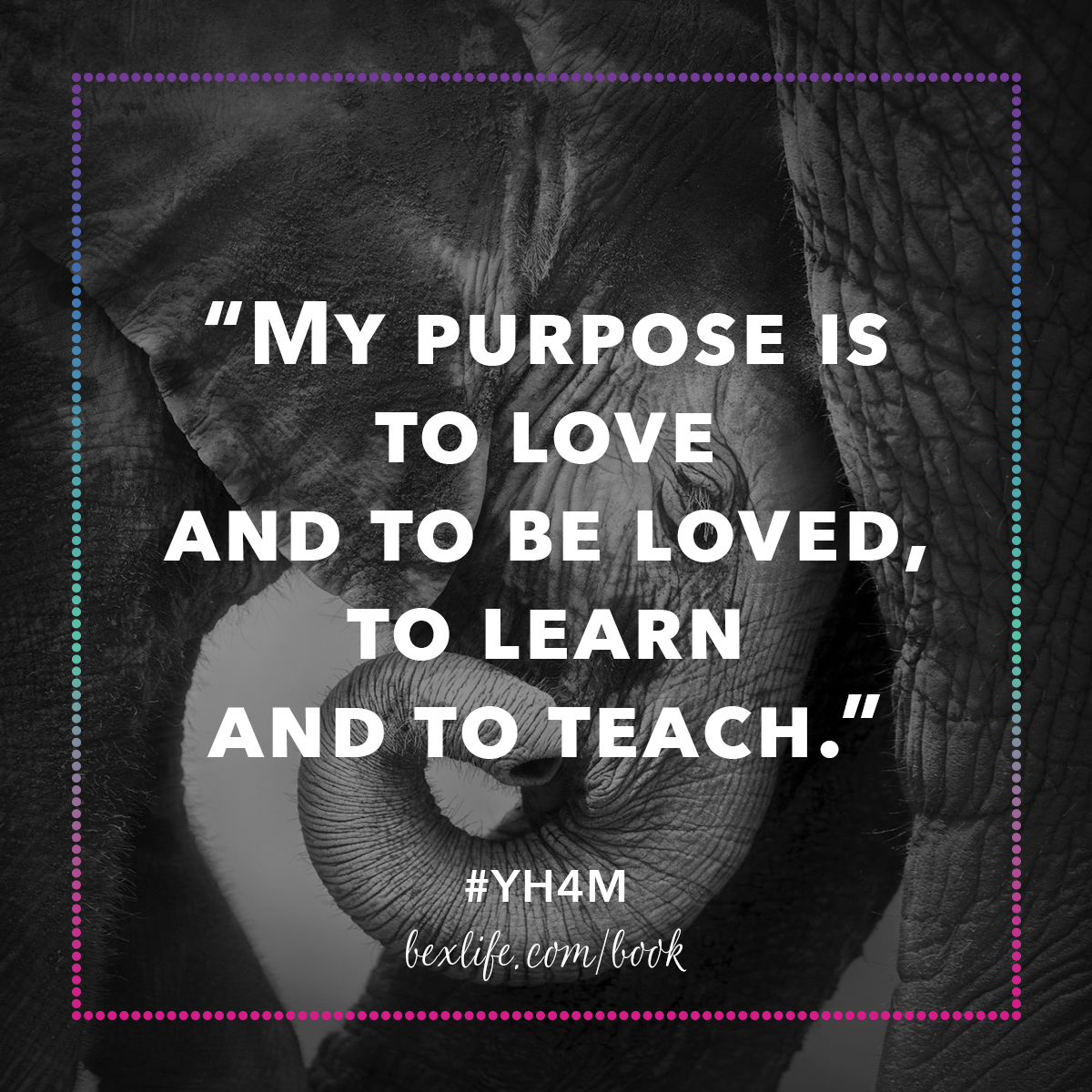
I started by studying yoga and finding a great deal of joy in it. When I became advanced in that practice, I began to teach yoga to others. You don’t have to be an absolute expert to be a teacher. You don’t have to know all the answers. Remember that perfection doesn’t exist. You just need to find the people who know just a little bit less than you at this point, and you pay it forward.
I’m still very humbled in the presence of master yoga teachers. The fear that I’m not worthy comes up for me, but because I have this practice of honoring my purpose, I can ease the fear. There’s a great quote by poet Henry Van Dyke: “The woods would be very silent if no birds sang there except those that sang best.” If everyone made the demand that they had to be perfect and know everything before they could teach, there would be no teachers.
So much of the time, we tell ourselves that we aren’t ready. We believe that we have to learn more, do more, and get more before we can go for the life we want. We think we aren’t enough. We say, “If I just lose ten more pounds, I’ll be able to have the relationship I want.” “If I just get one more degree, I’ll be able to have that career I’ve always dreamed about.” Just like we can’t wait for peace or happiness to show up, we also can’t wait until we’re perfect to get on with the business of our purpose. Sure, it makes sense to get some training. I didn’t teach a yoga class without ever having studied yoga. But I also didn’t wait until I was the master of masters before I started teaching people who could learn from me. We forget that so-called masters aren’t perfect either. They’re also human. We fail to realize that these people have flaws and fears of their own. We put them on pedestals, but they probably have someone they look up to as well.
I constantly remind myself how ready I am in every single moment. If I waited until I was anxiety-free before I shared my story with the world, you wouldn’t be reading this book right now. I would still be working at one of my old jobs (that I hated), wishing I was “ready” to start doing what I’m doing right now. I would never have helped the people I’ve helped or had all the wonderful rewards I’ve enjoyed.
There’s always someone who can learn from you. Even if you’re in the middle of a difficult time in your life, you’re right on time. There’s enormous reward in teaching. When you make it part of your practice—no matter how small—you’ll build tremendous courage and confidence. It will inspire you to learn even more so that you can then pass it on. It’s a domino effect that really does gradually change the world for the better.
“A master is a beginner who kept beginning.” —Mastin Kipp
Your Unique Purpose
Now that we’ve talked about our collective purpose—loving, being loved, learning, and teaching—what about your individual purpose that goes beyond the collective? To get clarity about my own, I asked myself three questions while in meditation. Then I listened for whatever answers came to mind, careful not to judge those answers, whatever they were.
Who was I before the world told me who to be—before society imprinted on my natural way of being?
I found that I had to ask myself this question many times, and the answer changed each time. When my students ask themselves this question, a common first answer is, “I was a kid who liked to color.” The next time the question is posed, the answer usually goes a bit deeper: “I was someone who loved to express myself through coloring and was uninhibited in that expression.” Eventually the answer might be something like: “I was fearless, confident, insightful, creative, and curious. I knew all the answers to the questions of the Universe. I was limitless and free.” Whoa, that’s a big statement! But it’s also a wonderful truth that can be revealed only through a regular practice of exploring, digging, and uncovering.
That brings us to Question 2.
How would I act, think, move, and express myself if the world had never told me how I had to act?
Once you have an answer to this question, you could ask more questions about it: If I were this person who could express without limit, what would I look like? How would I dress? What would I think of myself?
I’ve been told so many times in my life by well-meaning people that I should be quieter, and every time it was said, my self-esteem diminished. I felt self-conscious, as if I was doing wrong when I expressed myself freely. So who would I be if no one had ever said that to me?
And finally we arrive at Question 3.
Now that I know who I truly am and how I would express myself if I felt totally free, what am I going to do with that information going forward?
This is where the real work of building authentic courage and confidence begins. This is where you start practicing what you know instead of an untruth that you were conditioned to believe. And that can be very scary.
Should You Feel the Fear . . . and Do It Anyway?
Yes, I do feel the fear, and do what I want anyway . . . but with a caveat. Sometimes acting in spite of fear is a white-knuckle experience. The fear is big and makes me tense. I have to fight it while it keeps me in a viselike grip, so everything feels forced and painful. Have you ever had a similar experience? You’re shaking in your shoes, but you’re trudging forward anyway. It feels akin to trying to walk against the force of a hurricane.
It was a conversation with Josh Becker, host of the I Simply Am podcast, that changed how I “felt the fear and did it anyway.” At the time he was a stranger, but since then he has become a friend. In that initial discussion, he said something to me that was really hard to take, but it gave me great insight. “I’m hearing how you’re talking about your goals,” he said. “I’m a great admirer of your work, but you appear desperate.” Wow. That felt like a punch to the gut! But I took a breath and made the choice not to be defensive.
“How am I desperate?” I asked. “I don’t understand. I feel really good about what I’m doing and the message I’m sharing.” I genuinely wanted to know the answer.
“It isn’t desperation about wanting anything for yourself. It’s desperation that you aren’t reaching enough people, that if you don’t grow your influence fast enough, people won’t get what they need in time,” he responded. “But it also feels that you’re constantly denying that fear and that you’re struggling with it instead of just letting it be and bringing it along with you—accepting that the fear is there.”
Ah! I got it instantly. What I’d been doing was relating to my fear as a burden. That awareness alone began to lighten the weight of the fear—not because the fear went away. It didn’t! It was still very much there, but I started to relate to it in a subtly different way. I didn’t have to think of it as something that was holding me back. I could feel the fear and the courage at the same time. They could live together in me as friends in a way, rather than as adversaries.
In many respects, it was that layering effect again. I was afraid of my fear—afraid that it would get in my way. “Feeling the fear and doing it anyway” works best if we make peace with the fact that the fear is there and find ways to use it. I feel afraid every time I have to get up and speak in front of an audience, for example. My heart races, my thoughts are all over the place, and I’m convinced that I’ll sound like a babbling idiot. Even with my advanced self-care/self-love meditation practice, I feel all those things. But I don’t try to get rid of the fear. I accept it. I tell myself, “Yes, I’m feeling nervous. This is a natural reaction to public speaking. I also know what I’m talking about, and I have something valuable to share.” You see, I can feel the fear, but I can also feel the confidence. I can feel both and still deliver a kick-ass talk. The fear might show up, but it doesn’t stop me.
You see, fear is usually an illusion that can be manipulated and changed. The truth is steadfast and powerful. Connect with your truth to cultivate courage and confidence.
When I explain fear to kids, I tell them that I picture it as a big, dark ball of mystery. Then if I ask myself questions about the fear and get curious about it, the mystery becomes smaller and smaller. Even if I don’t have answers to all the questions, the curiosity alone begins to “shrink” the ball. I might ask myself, “Where is this fear coming from—a past experience? What’s the worst-case scenario, my biggest fear? What’s the likelihood that my worst fear could come true? If I let the fear stop me, what are the consequences? For example, what if I never start my teaching work? What if I never write my book?”
In my answers, I weigh the pros and cons, and as I do, the mystery starts to disappear. Let’s say the fear is indeed about writing my book. I might answer those questions by saying, “The fear is probably coming from past experiences when I felt ridiculed or like I didn’t do something perfectly. The biggest fear is that I’ll fall on my face and that everybody will think the book is terrible. But what’s the likelihood that my book will be awful? If a publisher decides it’s good enough, it must be good enough. Everybody who reads it probably isn’t going to like it, but that’s OK. I’m sure a lot of people will like it. What if I let my fear stop me and I don’t write my book? What would be the consequences of that? First of all, I’d be disappointed in myself that I gave in to the fear. I’d miss out on the opportunity to grow and help others. I’d miss out on the chance to be the person I want to be.” Those are some hefty consequences—worse, in my mind, than the chance of failure. Just clarifying that made me want to do it even more. How could I let my fears stop me from expressing what I know in my heart and soul is my purpose in this life?
Fear doesn’t like to be questioned. Nothing that lives in the dark likes to be placed in the spotlight. When we shine light on our fear by questioning it, it starts to cower and diminish. Soon your ball of fear becomes so tiny that it’s pocket-size. Then it’s merely a tiny, insignificant trifle that you carry around with you, hardly noticing its presence at all—not a giant hurricane that you have to push against or a big, black ball of mystery that weighs you down.
Click to tweet: My fear shrinks when I examine it with curiosity rather than judgment.
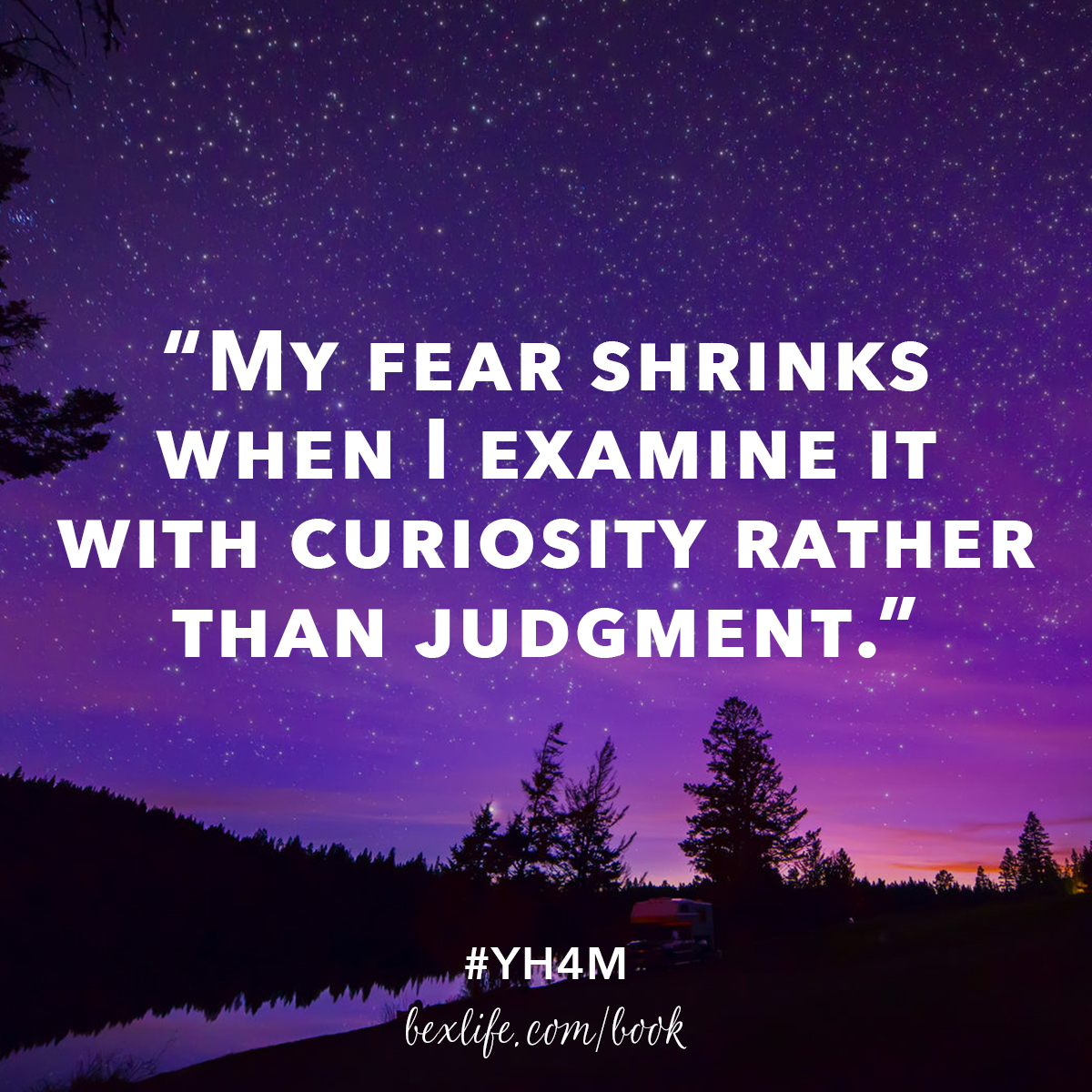
As your fear shrinks to a tiny, dark marble of mystery in your pocket, room is made for your divine purpose—the essence of who you were when you arrived in this body—to fill you with passion and joy. You can more easily connect with the courage, confidence, and freedom that you had before you began to feel afraid of being who you are.
You might have heard that love is the absence of fear or that if we’re feeling fear, we’re not in a place of love. I don’t believe this is true. Fear isn’t necessarily the enemy of love. We’re human beings, after all, and fear is something we all experience. We aren’t so perfect that love happens only in the absence of fear. How unfair would it be if we could love ourselves only if we never felt afraid (which is impossible, by the way)? We can feel fear and still act out of love.
I strongly believe that fear and love can hang out together and be buddies. Both can help us grow and become the teachers we need to lead us to success. Fear can be a motivator as much as it can be a motivation killer. So feel the fear, but act out of love—that’s the practice.
Meditating on Fear
When I find myself feeling fear, I don’t use a mantra like, “I’m brave.” I don’t pretend that I don’t feel fear. To me, bravery isn’t about blind faith. It’s about acknowledging that fear is present as I’m moving forward. I might even say, “In this moment I’m struggling with fear.” When I do that, I allow for possibility. That opening gives me the opportunity to step into success. I’m careful not to say, “I’m afraid.” Instead I acknowledge, “I have fear.”
Remember: you are not your fear, but you might have some fear right now. Having it means it’s something you can let go of—like a physical possession that you decide to throw away (or at least not hold on to so tightly). Your fear isn’t part of you; it’s something outside of you. It’s a marble in your pocket that you just might be able to throw away someday. That subtle reframe can help the fear begin to dissipate.
Simply acknowledging that I’m struggling with fear in the moment provides me with the possibility for success. My fear might tell me, “You can’t,” but the truth is that I’m just temporarily struggling with the fear that I can’t. I might not believe in myself yet, but I will eventually if I continue to connect with my purpose.
I still carry around pocketfuls of fear marbles, but they don’t weigh me down as heavily as they did in the past. Fear still comes up about expressing myself. I’m human, so it’s probably inevitable. But I have a strong desire to act on my purpose. I want to speak my truth and let my voice be heard. I don’t want to hide or feel that I have to keep my true feelings inside to protect myself or anyone else.
Click to tweet: Speaking my truth is an ultimate expression of love for others and myself.
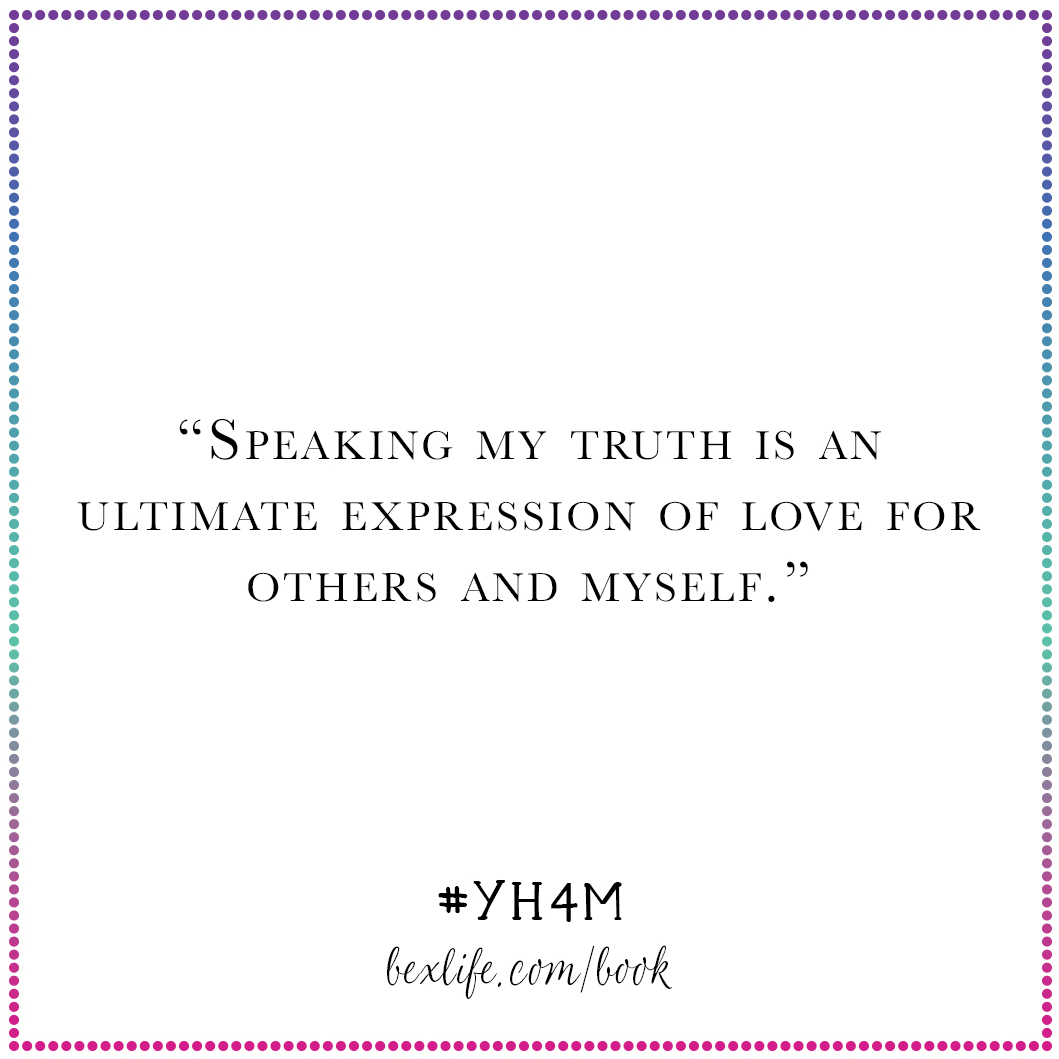
What have you longed to do but stopped because of fear? What have you worried that you aren’t quite ready to do? What does your sense of purpose ask of you? As you meditate, think of what actions you would like to take. If you cultivate the courage and confidence in meditation, what will you do? What will you express?
Get this chapter’s 4-minute meditations, my Meditation for Embracing Fear, Meditation for Confidence, and Meditation for Taking Action, when you pick up my book and your FREE bonuses on my book page. Just enter your order number for three exclusive bonus gifts from me.
I’d also like to invite you to continue the conversation on fear and participate in soul-searching “Get Blissed Activities” in my private Blissed In Facebook Community. There you’ll find over 2000 active members who are working together toward self-healing through non-judgemental support and leadership. Join us on Facebook here.
Stay blissed,
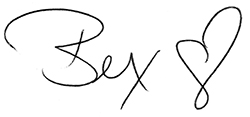

Rebekah “Bex” Borucki, founder of BexLife.com and the Blissed In® wellness movement, is a mother-of-five, TV host, meditation guide, author, speaker, birth doula, fitness and yoga instructor, and popular social media personality. Her first book, You Have 4 Minutes to Change Your Life (Hay House 2017), is available now, wherever books are sold.
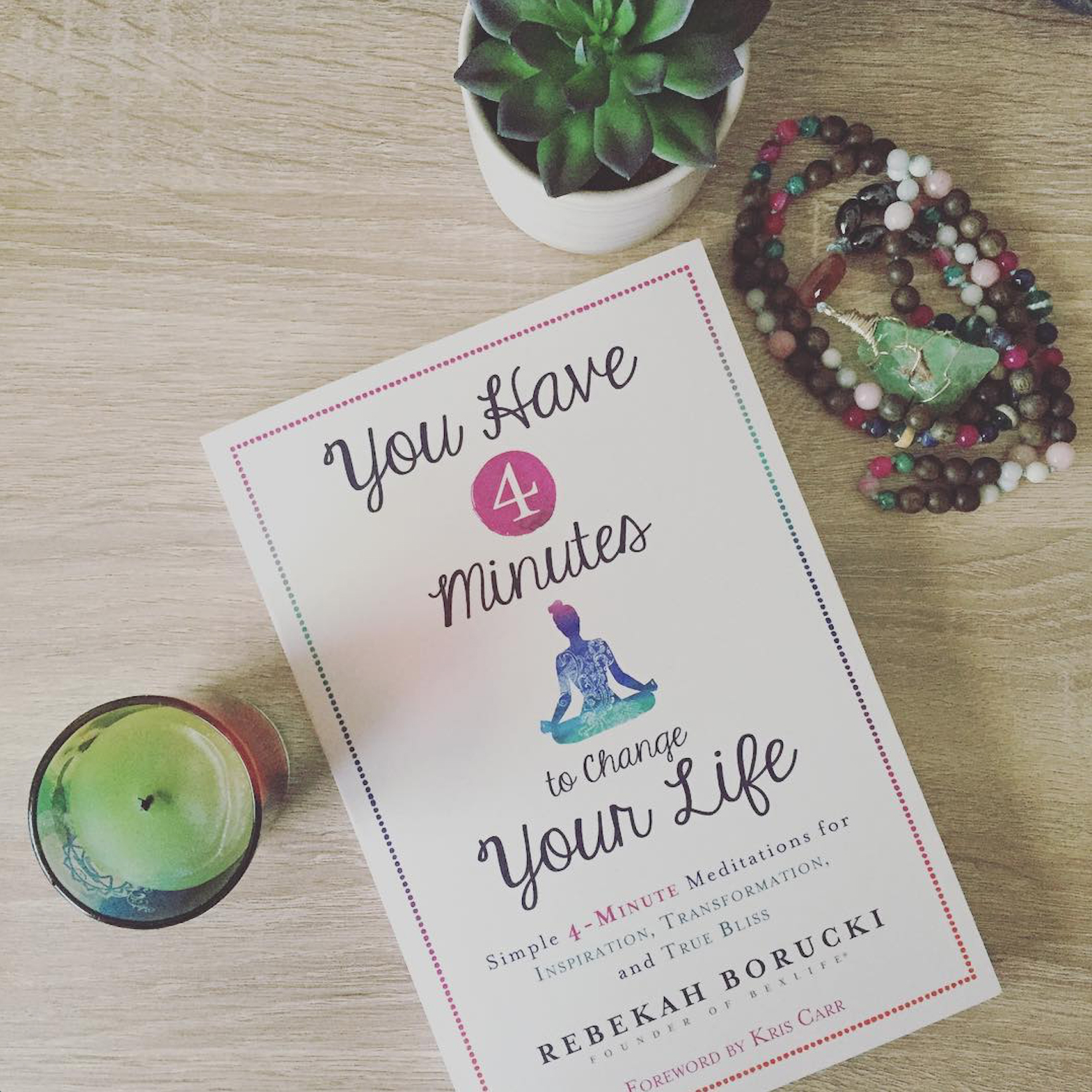
DISCLAIMER: This post/video is designed for educational and/or informational purposes only and should not be used in any other manner. This information is not intended to substitute informed medical advice. You should not use this information to diagnose or treat a health problem or disease without consulting with a qualified health care provider. A consultation with your health care professional is the proper method to address your health concerns. You are encouraged to consult your health care provider with any questions or concerns you may have regarding your condition.
